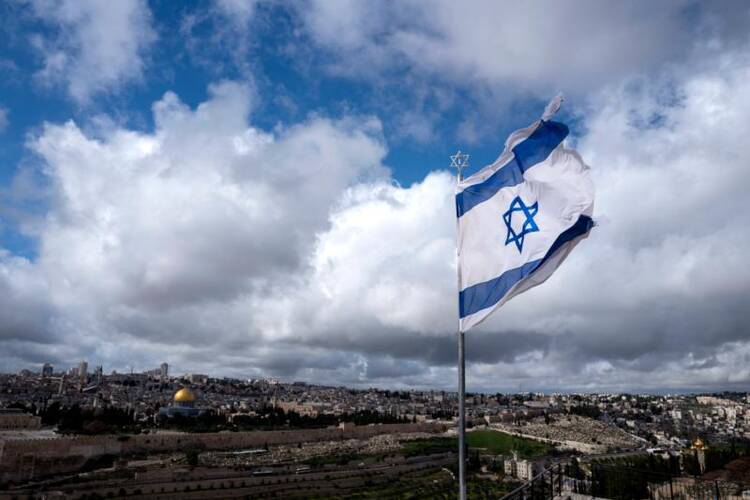JERUSALEM (CNS) -- The Latin Patriarchate of Jerusalem strongly criticized Israel's recently adopted law that defines the country as the nation-state of the Jewish people for failing to provide constitutional guarantees for the rights of indigenous people and other minorities in the country.
In a July 30 statement, the patriarchate said the law is a "cause of great concern" because the rights of Palestinian citizens, who make up 20 percent of Israel's population, are not protected by the law.
The patriarchate also raised concern for the rights of Israel's Christian citizen under the law.
"It is beyond conception that a law with constitutional effect ignores an entire segment of the population, as if its members never existed," the unsigned statement said. "The law might not have practical effects, yet it sends an unequivocal signal to the Palestinian citizens of Israel to the effect that in this country they are not at home."
The law was passed early July 19, receiving 62 votes in the 120-seat Knesset, Israel's legislative assembly.
Prime Minister Benjamin Netanyahu immediately welcomed its passage, saying "Long live the state of Israel!"
"With this law we determined the founding principle of our existence. Israel is the nation state of the Jewish people, and respects the rights of all of its citizens," he said.
Among its provisions, the law granted an advantageous status to Jewish-only communities and downgraded Arabic from an official language to one with a "special status."
The patriarchate said that while the law commits to work on the development of Jewish settlements, it contained no mention of the development of the country for other residents.
The law "is exclusive rather than inclusive, disputed rather than consensual, politicized rather than being rooted in the basic norms that are common and acceptable to all fractions of the population," the patriarchate said.
Citing United Nations Resolution 181 adopted in 1947, which partitioned what was then Palestine into Arab and Jewish regions and established the state of Israel, the patriarchate called the law discriminatory because it fails to protect the rights of non-Jewish residents.
The new law, the patriarchate said, also contradict a 1995 law that guarantees the respect of the dignity of every person. "Where there is discrimination, there is no dignity," the statement said.
"In other words, the law says there are not equal rights between Jews and Arabs and refuses to acknowledge their existence," it said.
The patriarchate called on Israeli citizens "who still believe in the basic concept of equality among citizens of the same nation" to object to the law "and the dangers emanating thereof to the future of this country."










